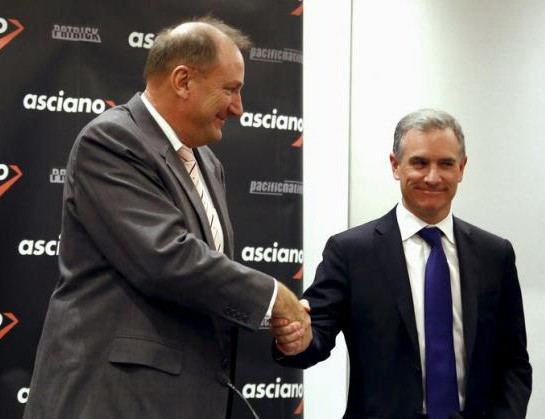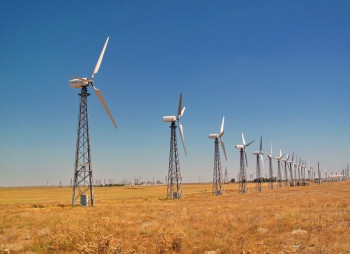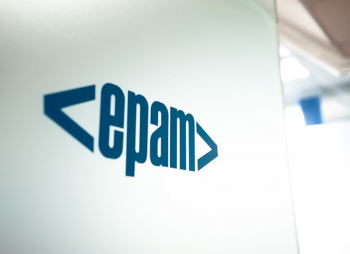Brookfield Infrastructure Partners, a global asset manager, said on Tuesday that a group it leads had reached an agreement to buy the Australian port and railroad operator Asciano for about $8.8 billion in cash and stock, and that it was shopping for ports farther afield in a push to expand.
“We would like to leverage our container platforms in the U.S., Europe and South America,” said Sam Pollock, Brookfield’s chief executive, in an interview after announcing the Asciano deal in Sydney. Asked if that meant Brookfield, which has $207 billion in assets, was seeking port acquisitions, Mr. Pollock said “yes.”
Brookfield wants to acquire more ports amid forecasts that seaborne trade will increase to as much as 24 billion tons in 2030 from about nine billion tons in 2014, according to a study by Lloyd’s Register, QinetiQ and Strathclyde University in Scotland.
A study by Drewry Maritime Research said that PSA International of Singapore, Hutchison Port Holdings of Hong Kong, APM Terminals of the Netherlands, DP World of the United Arab Emirates and the Cosco Group of China are the five biggest port operators based on container volume, controlling together 29 percent of the world’s trade. Brookfield has 10 ports on the West Coast of the United States and in Europe, according to its website, making it a fairly minor player in container terminal operations compared with its Asian and Middle East-based rivals.
Brookfield is a serial acquirer. This month, it said that it would seek to take a stake in the Brazilian toll road and airport company Invepar, had acquired a 50 percent stake in a 1.86-mile Chilean tunnel and signed agreements to purchase with co-investors the largest owner and operator of natural gas storage in North America, Niska Gas Storage Partners.
Asciano owns a national network of railroads that haul iron ore, coal and grains. It also owns a cargo-loading company, dry bulk ports and container terminals in Australia. It had been in exclusive negotiations with Brookfield since the beginning of July.
Brookfield, with operations based in Toronto, raised its offer for Asciano to 9.15 Australian dollars, or $6.73, in cash and shares from a 9.05 Australian dollars cash-and-share offer on July 1.
Under the terms of the acquisition, Asciano shareholders will receive 6.94 Australian dollars cash per Asciano share and 0.0387 of a Brookfield Infrastructure unit per Asciano share that has an implied value of 2.21 Australian dollars per Asciano share. That values the deal at 12 billion Australian dollars.
John Mullen, the chief executive of Asciano, said at a news conference that the company, which is based in Melbourne, had sought to expand outside Australia and had explored a series of deals with other companies that were unsuccessful.
“We’ve been searching quite a while to expand our horizons,” Mr. Mullen said. “Now we become part of a much bigger machine.”
Mr. Pollock said that after Brookfield closes its acquisition of Asciano, 55 percent of its cash flow, or earnings before interest, taxes, depreciation and amortization, will come from its transport businesses, including rails and ports. The remaining 45 percent of the company’s revenue will come from its utility assets that include energy investments.
“We’ll continue to look at opportunities in this market,” said Mr. Pollock at the Sydney news conference. “This is a market we like.”
Australia is attracting some of the world’s biggest infrastructure investors, including Canadian pension funds such as Caisse de dépôt et placement du Québec with $226 billion in assets as well as sovereign wealth funds from the Middle East like the Abu Dhabi Investment Authority.
As much as $93 billion worth of electricity, port, airport and rail assets may be sold by Australian states and the federal government to plug budget deficits while using part of the proceeds to invest in new infrastructure, according to Australian government documents. Brookfield owns a high-rise office building and a sports stadium in the West Australian city of Perth, a coal port in Australia’s tropical northeast and 3,417 miles of railroad in Western Australia.








